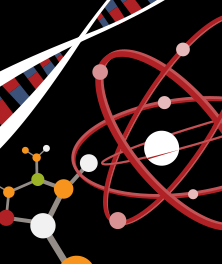Contact Information

- Division
- Sciences and Mathematics
- Dean
- Megan D'Errico
- Associate Dean
- Keely Carroll

- Division Office
- V 211, Rocklin Campus
Overview
Courses from the following departments are included in the interdisciplinary Natural Science associate degree:
- Agriculture
- Anthropology
- Astronomy
- Biological Sciences
- Chemistry
- Earth Science
- Environmental Studies and Sustainability
- Geography
- Mathematics
- Physics
- Psychology
Degrees/Certificates
Natural Science
AA or AS Degree
The Natural Science degree is designed for students who are pursuing transfer majors in the Natural Sciences, including Astronomy, Biological Science, Chemistry, Geography, Geology, Physics and related disciplines. In all cases, students should consult with a counselor for more information on university admission and transfer requirements. Students must fulfill the following major requirements with grades of “C” or better, complete a minimum of 60 degree-applicable semester units (12 of which must be completed at Sierra College) with a grade point average of at least 2.0 and complete one of the following three general education patterns:
- Sierra College Associate Degree Requirements;
- California State University General Education Breadth pattern;
- Intersegmental General Education Transfer Curriculum (IGETC).
Required Courses
| Code | Title | Units |
|---|---|---|
| Select 18 units from the following: | 18 | |
| Food, Society and the Environment | ||
| Introduction to Soil Science | ||
| Biological Anthropology | ||
| Biological Anthropology Laboratory | ||
| Introduction to Forensic Anthropology | ||
| Introduction to Planetary Systems | ||
| Introduction to Stars, Galaxies, and the Universe | ||
| Life in the Universe | ||
| Elementary Astronomy | ||
| Observational Astronomy | ||
| Astrophotography and Imaging | ||
| Frontiers in Astronomy | ||
| General Biology | ||
| Botany | ||
| General Zoology | ||
| Microbiology | ||
| Human Anatomy | ||
| Human Physiology | ||
| Introduction to Biology | ||
| Concepts of Biology | ||
| Natural History, Ecology and Conservation (also ESS 0014) | ||
| Marine Biology | ||
| Introduction to Plant Science (also AGRI 0156) | ||
| Wildland Trees and Shrubs (Dendrology) | ||
| Introduction to Zoology | ||
| General Human Anatomy and Physiology | ||
| Biology: A Human Perspective | ||
| Biology: A Human Perspective Laboratory | ||
| General Chemistry I | ||
| General Chemistry II | ||
| Introduction to Chemistry I | ||
| Introduction to Chemistry II | ||
| General Chemistry I - Part 1 | ||
| General Chemistry I - Part 2 | ||
| Chemistry - Quantitative Analysis | ||
| Organic Chemistry I | ||
| Organic Chemistry II | ||
| Physical Geology | ||
| Physical Geology Laboratory | ||
| California Geology | ||
| Historical Geology | ||
| Historical Geology Laboratory | ||
| Introduction to Earth Science | ||
| Introduction to Earth Science Laboratory | ||
| Introduction to Oceanography | ||
| Introduction to Oceanography Laboratory | ||
| Introduction to Environmental Sciences and Sustainability | ||
| Introduction to Environmental Science Laboratory | ||
| Energy, Environment, and Climate (Also ESCI 0007) | ||
| California Water | ||
| Conservation of Natural Resources | ||
| Physical Geography | ||
| Physical Geography Laboratory | ||
| Weather and Climate | ||
| College Algebra | ||
| Elementary Statistics | ||
| Calculus for Social and Life Sciences | ||
| Calculus for Social and Life Sciences | ||
| Trigonometry | ||
| Pre-Calculus Mathematics | ||
| Analytical Geometry and Calculus I | ||
| Analytical Geometry and Calculus II | ||
| Analytical Geometry and Calculus III | ||
| Differential Equations and Linear Algebra | ||
| Business Calculus | ||
| Basic Concepts in Physics | ||
| Basic Concepts in Physics Laboratory | ||
| General Physics I and General Physics I Laboratory | ||
| General Physics II and General Physics II Laboratory | ||
| Principles of Physics: Mechanics and Principles of Physics Laboratory: Mechanics | ||
| Principles of Physics: Electricity and Magnetism and Principles of Physics Laboratory: Electricity and Magnetism | ||
| Principles of Physics: Heat, Waves and Modern Physics and Principles of Physics Laboratory: Heat, Waves and Modern Physics | ||
| Introduction to Biopsychology | ||
| Biopsychology Laboratory | ||
| Total Units | 18 | |



